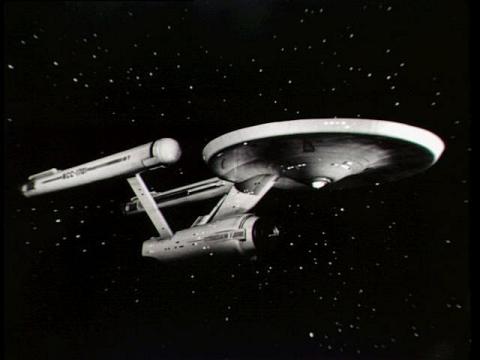Why Sci-Fi Keeps Imagining the Subjugation of White People
As much as the genre imagines the future, it also remixes the past—often by envisioning Western-style imperialism visited on the Western world.
By Noah BerlatskyaprThe link between colonialism and science-fiction is every bit as old as the link between science-fiction and the future. John Rieder in his eye-opening book Colonialism and the Emergence of Science-Fiction notes that most scholars believe that science fiction coalesced "in the period of the most fervid imperialist expansion in the late nineteenth century." Sci-fi "comes into visibility," he argues, "first in those countries most heavily involved in imperialist projects—France and England" and then gradually gains a foothold in Germany and the U.S. as those countries too move to obtain colonies and gain imperial conquests. He adds, "Most important, no informed reader can doubt that allusions to colonial history and situations are ubiquitous features of early science fiction motifs and plots."
The iconic example of colonialism-inspired sci-fi is that most important of sci-fi stories, H.G. Wells's War of the Worlds. As Rieder says, Wells begins his book with an explicit comparison of the Martian invasion to colonial expansion in Tasmania. "The Tasmanians," Wells writes,in spite of their human likeness, were entirely swept out of existence in a war of extermination waged by European immigrants, in the space of fifty years. Are we such apostles of mercy as to complain if the Martians warred in the same spirit?"Here the Martian conquest is presented as analogous to, and even as just retribution for, Britain's colonial genocide. As has been visited on them, so shall it be visited on us.
With Wells in mind, it’s easy to see colonial metaphors throughout the sci-fi that followed him. In many cases, as with Wells, these works flip the racial dynamic that characterized the most influential imperialist ventures of the last few centuries. In such stories, sci-fi is about “them” (a non-white, foreign civilization) doing to us (Western, largely white powers) as we did to them. Star Trek: The Wrath of Khan and Into Darkness, for example, imagine a non-white antagonist who preaches the colonial ideology of eugenic culling against the less biologically perfect, Western-ish protagonists.Comment: For more on
Star Trek, see
Controversies in Star Trek Into Darkness and
Mistakes and Stereotypes in The Paradise Syndrome. For more on the link between speculative literature and colonialism, see:
Burroughs the conservative racist
Stereotypes in Tarzan of the Apes
Frankenstein's monster = Eskimo
Charles Dickens on "Esquimaux"
The "Other" and The Terror



1 comment:
You know, this may not have much to do with Star Trek, but it does have to do with science fiction and colonialism. The original Planet of the Apes came out in 1968, during the time that the Civil Rights Movement was taking place. And the movie's villains are intelligent apes that have overtaken Earth--which could easily be taken by racists of the time as code for "Look, this is what happens when you let those commie blacks take over the country--whatever we did to them, they'll do to us". Not a message you want to be sending.
Post a Comment